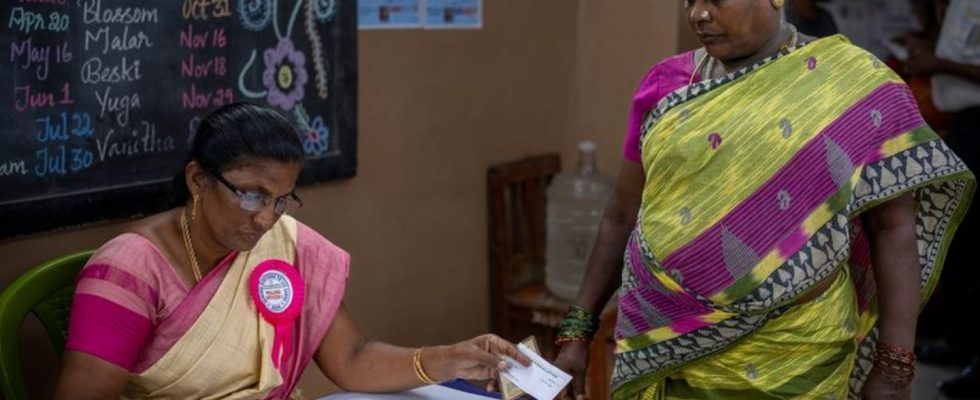Choose
Parliamentary elections have begun in India
The election in India has begun – due to the size of the country it will last six weeks. photo
© Altaf Qadri/AP
It’s the biggest vote in the world. Over six weeks, hundreds of millions of people in India vote for their parliament. Prime Minister Modi can hope for re-election.
This means that the 73-year-old, who is extremely popular with the people, could rule for another five years after ten years in power. Because of the size of the country – India is the most populous country in the world with 1.4 billion inhabitants – the election lasts six weeks and takes place in seven phases. Voting began on Friday in 102 of a total of 543 electoral districts, as the electoral commission announced. The world’s largest democracy has 36 states and federally administered territories.
Modi and his BJP are confident of victory. Under him, India became the fifth largest economic power, which attracts investors. Modi is investing heavily in modern infrastructure such as roads, express trains and airports. However, the opposition complains that growth is not evenly distributed. It is said that the rich are being favored while unemployment is high and corruption is widespread. Added to this is inflation. Critics also accuse Modi of using authorities specifically to target the opposition. Before the election, several opposition leaders were arrested on corruption charges, among other things.
Weak opposition
According to observers, Modi also benefits from the fact that the opposition is weak and fragmented. “The Indian opposition has been busy with itself for a decade now and has no strategy for this election,” says Elias Marini Schäfer from the Konrad Adenauer Foundation in New Delhi.
Modi’s biggest challenger is Rahul Gandhi of the Congress Party, which had ruled for most of India’s independence from Great Britain in 1947 – until it ousted Modi from power with his BJP in 2014. Since then, India’s weight on the world stage has increased significantly. Western states want to work more closely with China in the face of an increasingly aggressive China.
Criticism of Modi
Modi centralized power in his office, undermined the independence of public institutions such as the country’s judiciary and media, built a personality cult around himself and pursued his party’s ideological goals with ruthless efficiency, Foreign Affairs magazine wrote ahead of the event Choice. “There is no more democracy in India,” recently commented Congress leader Rahul Gandhi.
Modi, on the other hand, convinces his supporters with his vision of making the subcontinent a rich and globally valued nation in which Hinduism is at the center of national identity. Critics complain that religious minorities are increasingly becoming second-class citizens. Opposition leader Gandhi fears: “They want to abolish the democratic process so that they can destroy all other ideas.” To this end, Modi’s party is pursuing a change in the constitution. However, this would require a two-thirds majority in parliament – which, according to observers, would be difficult.

